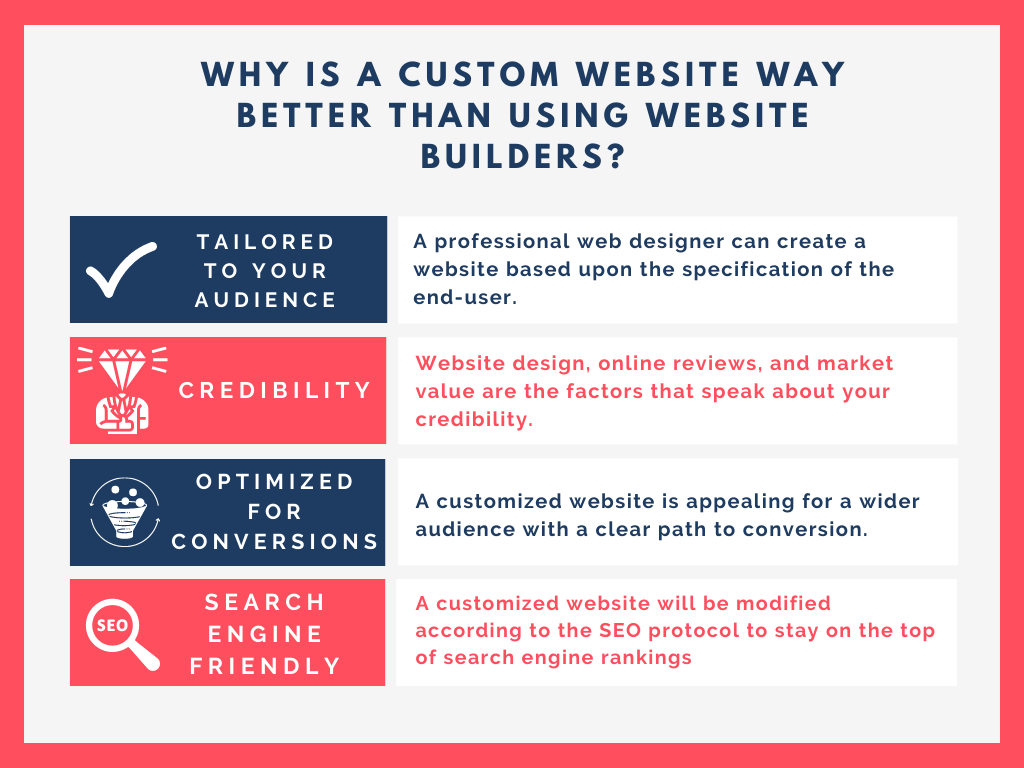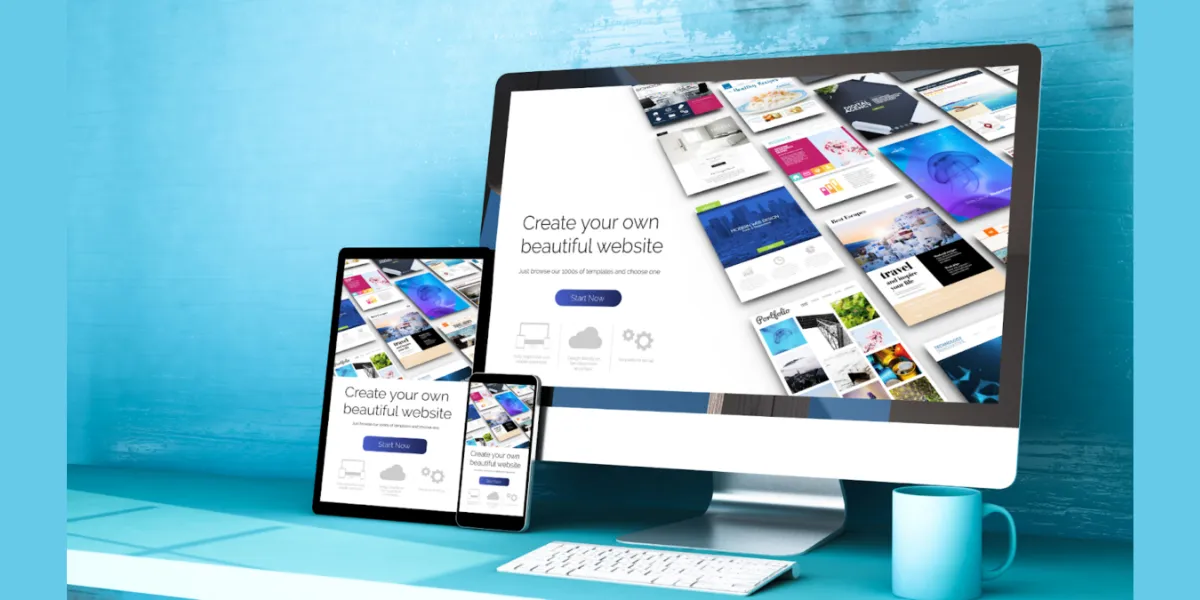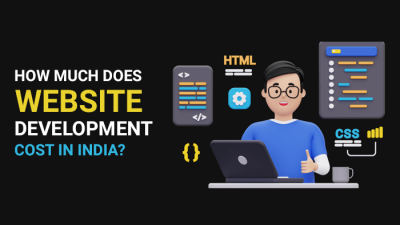Introduction
In today’s hyper-competitive digital landscape, having a website is no longer enough. With millions of businesses vying for attention online, the real challenge is standing out. While template-based websites offer convenience and affordability, they often fall short in delivering a unique brand experience. That’s where Custom Websites Help You Stand Out in a Crowded Market
A custom website is built from the ground up to reflect your brand’s identity, meet specific business goals, and deliver a tailored user experience. In this blog, we’ll explore how custom websites help businesses differentiate themselves, build trust, and drive growth in a crowded market.
1. What Is a Custom Website?
A custom website is designed and developed specifically for a business or brand. Unlike template-based sites, which use pre-built layouts and limited customization, custom websites are built from scratch using code, frameworks, and design systems tailored to the client’s needs.
Key Characteristics
- Unique design and branding
- Custom functionality and features
- Scalable architecture
- Optimized performance
- Enhanced security
Custom websites are ideal for businesses that want full control over their digital presence.
2. Why Standing Out Matters
The Digital Noise
With billions of websites online, users are bombarded with choices. Generic designs and cookie-cutter layouts blend into the background, making it hard for businesses to capture attention.
Consumer Expectations
Modern consumers expect personalized, fast, and intuitive experiences. A custom website shows that you’ve invested in quality and care about user experience.
Brand Differentiation
Your website is often the first impression. A custom design helps communicate your brand’s personality, values, and professionalism—setting you apart from competitors.
3. Unique Branding and Visual Identity
Template Limitations
Templates often come with predefined layouts, fonts, and color schemes. While they can be tweaked, they rarely offer the flexibility needed for a truly unique brand experience.
Custom Design Advantages
- Tailored color palette, typography, and imagery
- Unique layouts that reflect brand storytelling
- Consistent design across all devices and touchpoints
A custom website becomes a digital extension of your brand—memorable, recognizable, and impactful.
4. Tailored User Experience (UX)
Understanding Your Audience
Custom websites are built with your specific audience in mind. This means designing navigation, content flow, and interactions that align with user behavior and expectations.
UX Benefits
- Streamlined user journeys
- Personalized content delivery
- Accessibility for diverse users
- Higher engagement and lower bounce rates
When users feel understood, they’re more likely to stay, explore, and convert.

5. Custom Functionality and Features
Beyond the Basics
Template websites often limit functionality to what’s available in plugins or built-in modules. Custom development allows you to build features that solve real business problems.
Examples
- Custom booking systems
- Interactive product configurators
- Personalized dashboards
- Advanced search and filtering
- API integrations with third-party tools
These features not only improve usability but also create a competitive edge.
6. SEO and Performance Optimization
Template Challenges
Many templates come with bloated code, unnecessary scripts, and poor optimization—hurting your site’s speed and SEO.
Custom Optimization
- Clean, semantic HTML and CSS
- Fast-loading pages with optimized assets
- Structured data and schema markup
- Mobile-first design
Better performance leads to higher search rankings, improved user experience, and increased conversions.
7. Scalability and Future-Proofing
Template Constraints
As your business grows, template websites may struggle to accommodate new features, integrations, or traffic volumes.
Custom Development Benefits
- Modular architecture for easy expansion
- Scalable databases and backend systems
- Flexibility to adapt to changing business needs
A custom website evolves with your business, saving time and money in the long run.
8. Enhanced Security and Control
Security Risks with Templates
Popular templates and plugins are frequent targets for hackers. Relying on third-party code increases vulnerability.
Custom Security Measures
- Secure authentication systems
- Role-based access control
- Regular code audits and updates
- Protection against common threats (XSS, SQL injection)
Custom websites give you full control over security protocols and data protection.

9. Better Analytics and Insights
Generic Tracking
Template sites often rely on basic analytics setups, limiting insight into user behavior.
Custom Tracking
- Advanced event tracking
- Funnel analysis
- Heatmaps and session recordings
- Integration with CRM and marketing tools
These insights help you make data-driven decisions and refine your strategy.
10. Competitive Advantage
Standing Out
In saturated markets, differentiation is key. A custom website helps you:
- Showcase your unique value proposition
- Build trust and credibility
- Deliver a superior user experience
It’s not just about looking different—it’s about being better.
11. Case Studies: Custom Websites in Action
Case Study 1: Boutique Hotel
A boutique hotel needed a website that reflected its luxury experience. A custom site included:
- Interactive room tours
- Integrated booking engine
- Personalized recommendations
Result: 35% increase in direct bookings.
Case Study 2: SaaS Startup
A startup built a custom dashboard for users to manage subscriptions and analytics. The site featured:
- Real-time data visualization
- Custom onboarding flow
- API integrations
Result: 50% reduction in churn and improved user satisfaction.
Case Study 3: Creative Agency
An agency wanted a portfolio that stood out. The custom site included:
- Animated transitions
- Case study storytelling
- Custom CMS for easy updates
Result: 60% increase in inbound leads.

12. When Custom Development Is the Right Choice
Scenarios
- You need unique functionality
- Your brand requires a distinct visual identity
- You’re scaling rapidly
- You want full control over performance and security
- You’re building a long-term digital product
If your website is central to your business model, custom development is a strategic investment.
13. Common Misconceptions
“Custom Websites Are Too Expensive”
While the upfront cost is higher, the long-term ROI often outweighs the investment—especially when considering performance, scalability, and reduced reliance on plugins.
“Templates Are Good Enough”
Templates may suffice for basic sites, but they rarely support complex needs or deliver a standout experience.
“Custom Development Takes Too Long”
With proper planning and agile workflows, custom sites can be delivered efficiently—often faster than expected.
14. How to Get Started with Custom Website Development
Steps
- Define your goals: What do you want your website to achieve?
- Research your audience: Who are you designing for?
- Choose the right team: Work with experienced designers and developers.
- Plan your content and features: What will users see and do?
- Design and prototype: Create wireframes and mockups.
- Develop and test: Build the site and ensure it works flawlessly.
- Launch and optimize: Monitor performance and iterate.
Conclusion
In a crowded digital market, a custom website is more than a luxury—it’s a strategic asset. It helps you stand out, connect with your audience, and deliver a brand experience that’s memorable, functional, and future-ready.
Whether you’re a startup, a growing business, or an established brand, investing in custom website development can be the key to unlocking your full digital potential. It’s not just about being online—it’s about being exceptional.





